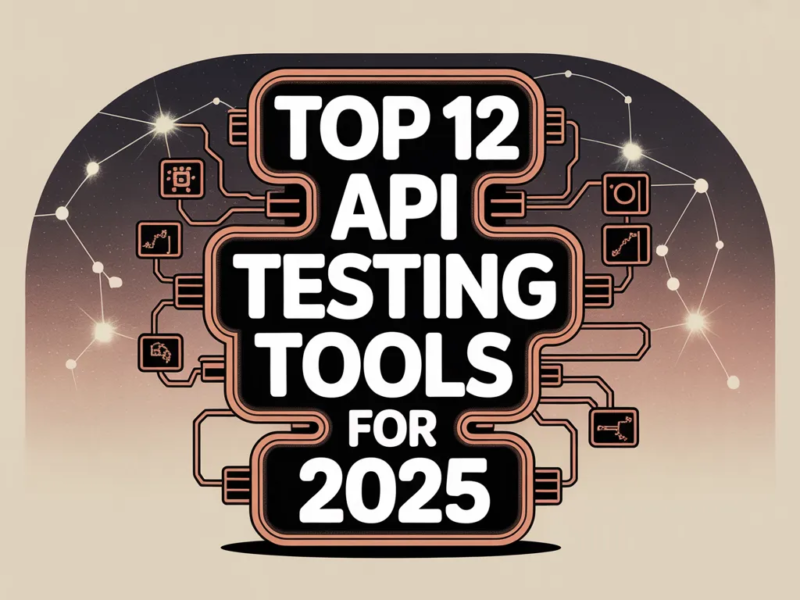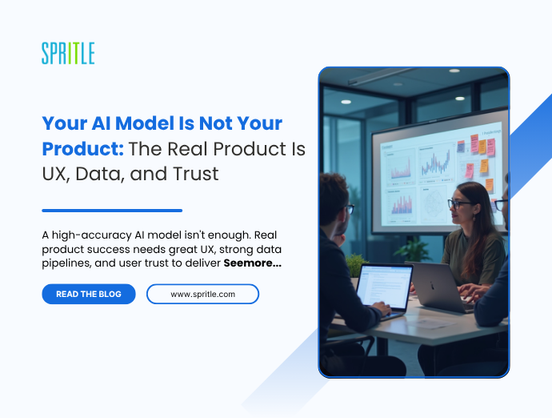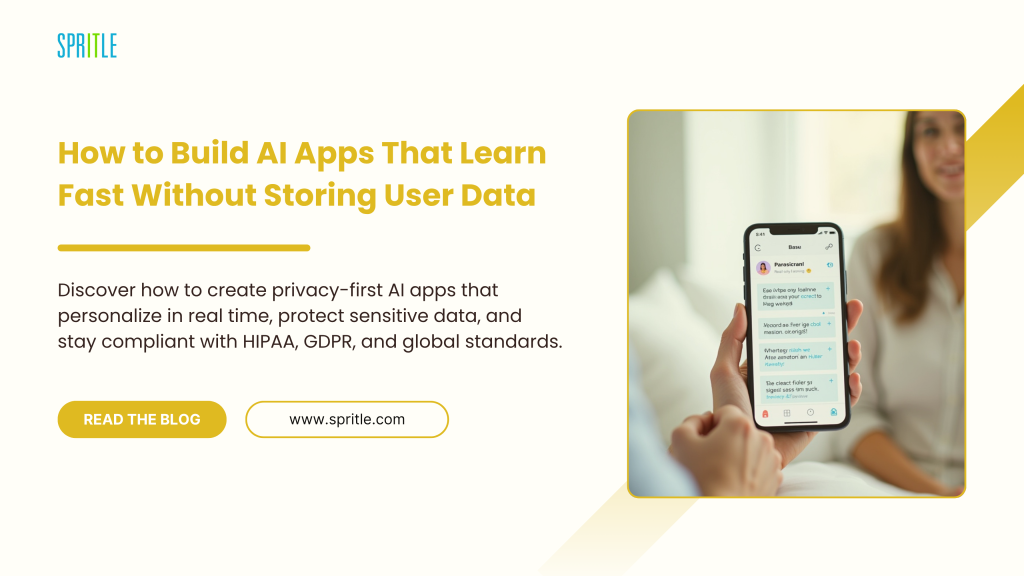
“Hey , Ever get the feeling your apps know a little too much about you?”
I had a casual coffee chat the other day, and the conversation drifted to apps and privacy. One friend raised an eyebrow and said, “It’s weird — sometimes these apps remember things I didn’t even realize I told them.” That stuck with me.
Because honestly, who hasn’t felt that? We all love apps that are clever and useful, but there’s a thin line. No one likes the experience of feeling monitored or tracked endlessly. Real-time help is great — but it should come without the creepy aftertaste of having your data stored forever.
And in industries like healthcare, finance, and enterprise SaaS, that line isn’t just an opinion — it’s the law.
This is why, at Spritle Software, we’ve become obsessed with a simple question: How can we build AI systems that learn from users in real-time without ever storing their personal data?
Today, I’ll walk you through how we approach this — and why it’s changing the way smart apps are built.
The Old Way: Data-Hungry, Privacy-Blind
For years, the AI playbook was simple: collect as much data as possible, feed it into big server-side models, and train the AI until it’s “smart enough.”
This worked great for making viral social media apps or recommendation engines. But in healthcare, finance, and enterprise products, the stakes are different:
- Doctors can’t risk patient data leaks.
- Financial apps have to follow strict rules.
- Companies have a legal and moral responsibility to protect people’s privacy — but at the same time, people still want smart, helpful tools that feel personal and made just for them.”
That’s the real challenge: how do you make AI personal and responsive—without overstepping privacy boundaries?
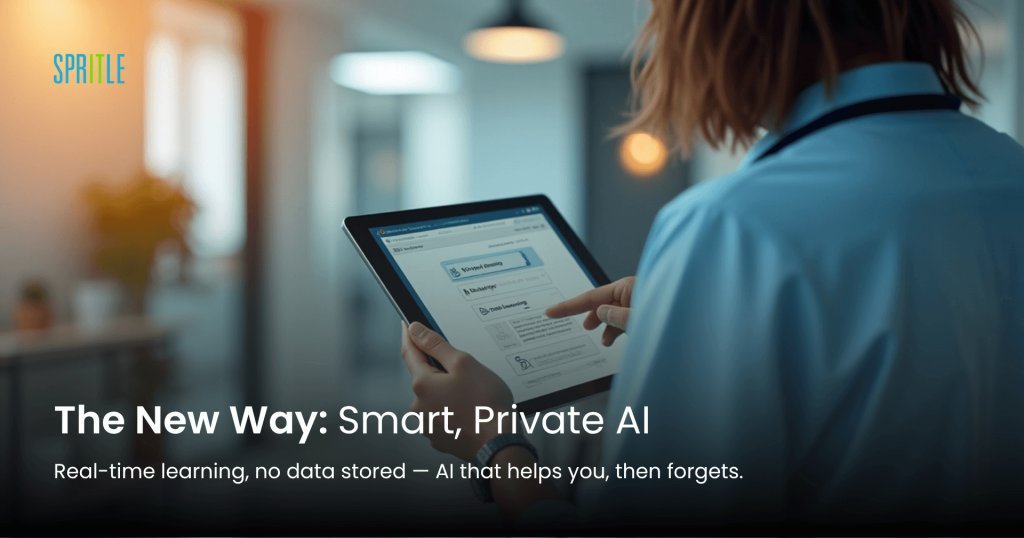
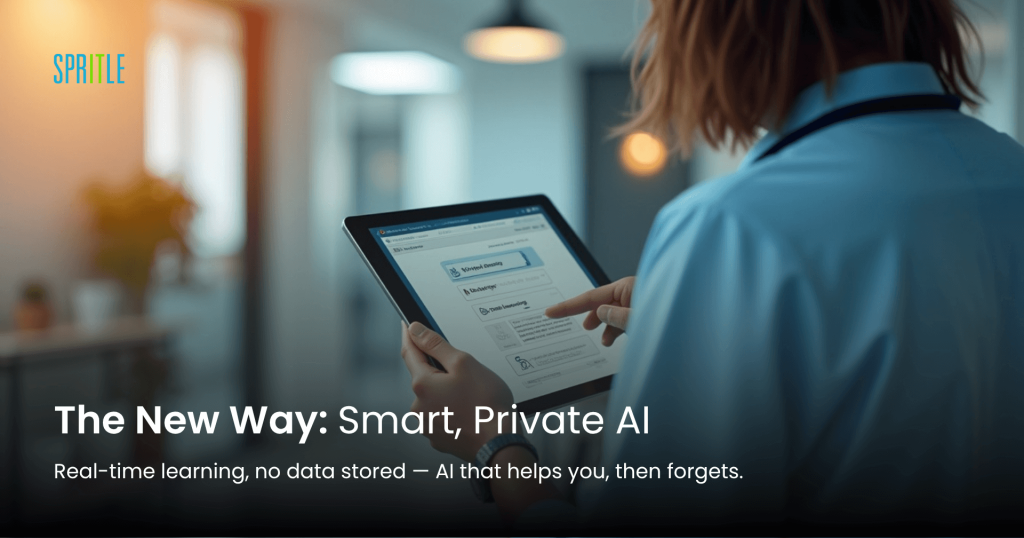
The New Way: Learning On-the-Fly, Forgetting Instantly
Let me tell you a quick story.
One of our partners, a healthcare SaaS startup, wanted to create a smart clinical note-taking app. It needed to adapt to each clinician’s style — some preferred shorthand, others used full sentences, some used specific medical codes. But there was a catch: no patient data could leave the device.
Here’s how we solved it:
1. On-Device Learning
All the learning happens on the user’s device. The AI models adapt during the session, improving the experience in real-time without sending sensitive data to any server.
2. Ephemeral Learning Sessions
Like a good waiter who remembers your order while you dine — but forgets it after you leave — the app improves during each session but doesn’t store your information afterwards.
3. Federated Learning (Optional)
When improving the model globally, we used federated learning — a privacy-first method where only anonymized model updates (not raw data) are sent to improve the core AI.
The result? Clinicians finally have a smarter tool that actually feels tailored to how they work — all without risking patient privacy.
Making It Simple
Here’s an easy way to think about it:
On-device AI is like having a little brain built right into your phone or tablet. It learns from you, helps you out — but never sends your information off to the cloud or anyone else.
- Federated learning lets your app share only “lesson summaries,” not actual conversations.
- Ephemeral learning means the app gets smarter during your use but resets after, keeping no record.
It’s about real-time smarts with built-in forgetfulness — and this balance is what modern privacy-first AI apps are all about.
Common Myths About AI Learning (And Why They’re Wrong)
Let’s bust a few myths that we hear all the time:
Myth 1: “AI needs big data to work well.”
Not always. With advances in transfer learning and on-device models, AI can adapt in real-time using small amounts of user interaction.
Myth 2: “All smart features need the cloud to work.”
Not really. Plenty of AI features can run right on your device — no internet required. This keeps things fast and smooth, and your data stays private.
Myth 3: “Personalization only works if you store user profiles.”
That’s not the case. Apps can adapt in real-time without saving your data. It’s called on-the-spot personalization — learning in the moment, then forgetting when you’re done.
Myth 4: “Federated learning is just for big tech companies.”
Nope. Businesses of any size can use federated learning, especially with the right partners to help set things up. You don’t need to be Google to get the benefits.
Myth 5: “Privacy-friendly AI is too complicated and too expensive.”
Not anymore. With modern tools, building AI that respects privacy doesn’t have to break the bank — or your brain. It’s becoming simpler and more affordable every day.
FAQs: What Our Clients Usually Ask Us
1. Can AI really improve without saving any data?
Yes! We use on-device session-based learning, and in some cases, anonymized updates via federated learning to make the AI smarter without saving sensitive user data.
2. Will this slow down my app?
On-device AI cuts down on server calls, making your app faster and more responsive — especially with the right setup.
3.Is this HIPAA and GDPR compliant?
Yes. We implement AI systems with privacy, employing best practices to be fully compliant with HIPAA, GDPR, and other legislations.
4. Which industries benefit most?
Healthcare, finance, education — any industry handling personal data sees major gains from privacy-first AI.
5. Why should I partner with Spritle Software?
Because we don’t just throw AI models at problems — we strategically design AI systems that are ethical, privacy-conscious, and user-friendly. We help you balance business goals with user trust.
Why This Matters More Than Ever
Today’s users are becoming more privacy-aware. With constant news about data breaches, people don’t want to feel like lab rats feeding corporate AI.
When you build apps that learn without storing, you offer the best of both worlds:
- Personalization without spying.
- Intelligence without intrusion.
- Adaptiveness without risk.
And honestly? Users notice the difference — and reward you with loyalty.
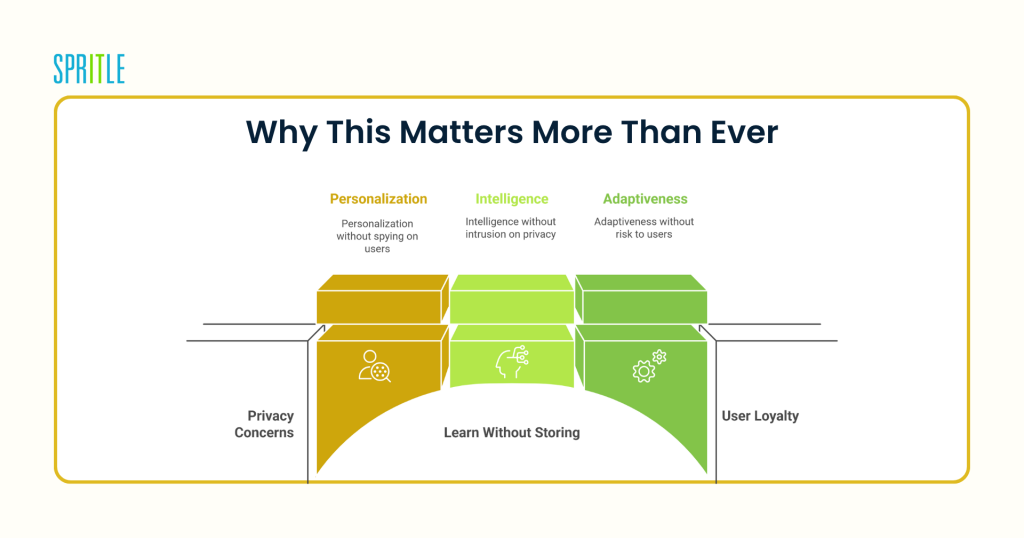
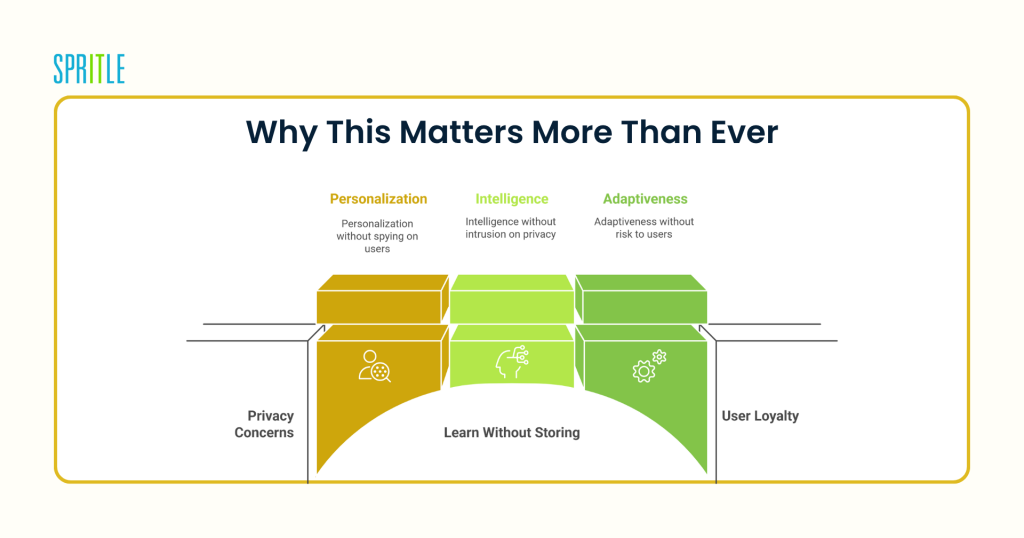
Spritle’s Role: Making Smart, Ethical AI Practical
At Spritle, we work with companies who want to do AI the right way — building apps that respect users while still delivering amazing experiences.
We don’t just build software. We build trustworthy, user-first AI systems:
- With custom architectures
- Regulatory compliance baked-in
- And designs that focus on human experience first
The Future: Smarter AI That Knows When to Forget
The next generation of AI won’t be about collecting more — it’ll be about collecting less but learning smarter.
Imagine apps that feel like attentive assistants during use but have zero memory of you afterwards. Think AI that helps you in the moment, without tracking you after.
That’s the future we’re building at Spritle.
If you’re thinking about building smarter apps while respecting user privacy — let’s talk. Your users will thank you for it.
Interested in building privacy-first AI? Reach out to us at Spritle Software. Let’s create intelligent apps people actually trust.
